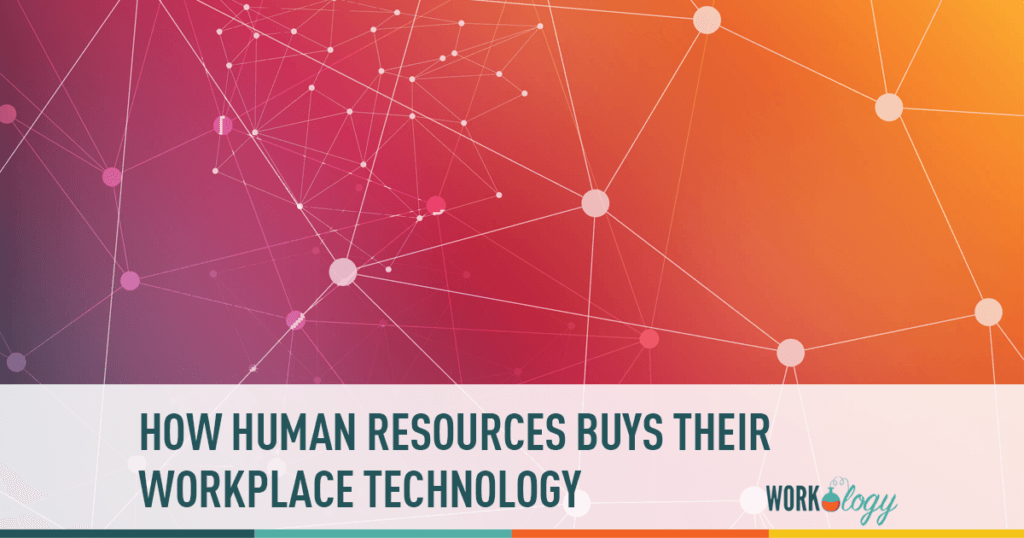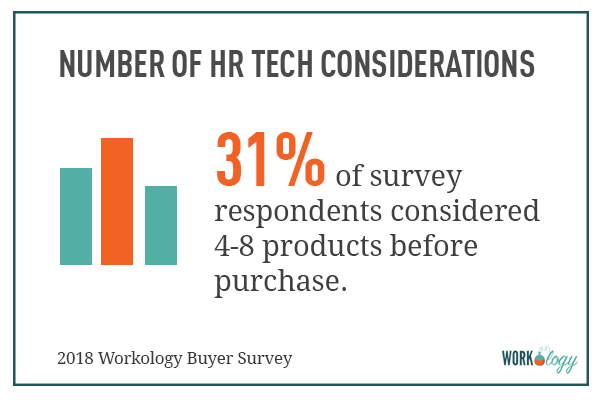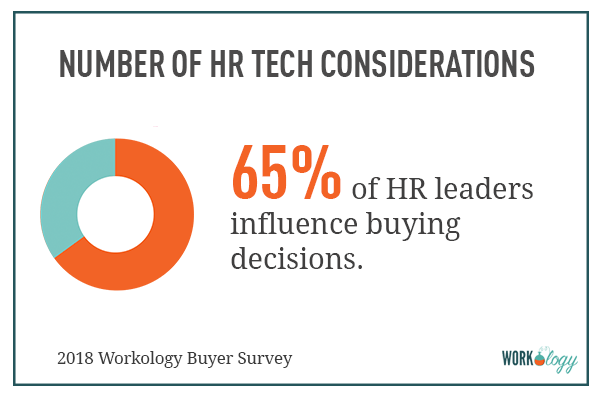If you’ve been following this blog for any length of time, you already know that one of the things I get fired up about it the selling, marketing and engagement process between human resources and recruiting professionals with industry service providers and vendors. In my personal opinion, there is a great deal of misinformation about the buying, demo-ing and selection process leading to plenty of missteps by a handful of eager sales professionals and organizations that hurt the rest of the industry.
This week I’m in Las Vegas for the HR Technology Conference where I will attend sessions, mix, and mingle with thousands of technologists, products, analysts, services, analysts, practitioners, and enthusiasts. This conference is one of my favorites as it provides a great platform for discussion, learning, and conversations for everyone within the HR technology industry.
I believe it is our responsibility as HR leaders and buyers to educate the market, not the other way around. That’s how I view my role in the HR ecosystem. I serve as an HR advocate focused on providing resources for HR and recruitment leaders. That’s exactly why I am seeking to educate HR technology vendors and service providers on buying practices and expectations. Earlier this year, I created a short HR and Recruiting Buyer Survey to ask Workology readers how they purchase and discover their HR and recruiting technologies, as well as how they use them. The survey had an amazing response, some expected, some not so predictable. I’m excited to share the results with you here, as well as in some ongoing work to help recruiting tech vendors and providers with data that shows what we in the recruiting industry (I’m including talent acquisition as well) expect and want from our technology evaluation and buying experience.
How HR Buys Their Human Resources Technology
With regards to company size, the majority of respondents work for companies with fewer than 50 employees (23%), with the remainder pretty evenly distributed from 10,000 or more employees (13%), to 1,000-5,000 employees (13%), and 101-250 employees (15%). This is a nice snapshot of the variety of company size in our industry.
The majority of responses to “how many technologies do you consider and demo as part of the buying process” fell into 1-3 products (66%), with 31% considering 4-8 products. As far as the number of people involved in the evaluation process, most survey respondents said fewer than 3 (56%), with 31% responding that between 4 and 8 people are involved in the process. When you consider that these evaluators are looking at three products on average, with more than three stakeholders involved in the process, vendors should understand that this decision-making process will lengthen the time from demo to decision.
Final Buying Decisions
I also asked about the final decision. More than 65% of respondents said they were responsible for evaluation and recommendation and just 20% responded that they were the final decision-makers, meaning that the majority of recruiters and HR pros have to get buy-in from someone else at their company, likely a CEO or other C-level executive. Another key point for vendors to consider: It’s just as important to help your contact “sell” their decision as it is to sell your software.
The role of HR leaders in the buying process of HR technology is changing, and now more than ever I am seeing more CEO’s and senior business leaders outside of HR want to be involved in the selection of their HR technology products. The type of HR technology we use to build our human resource departments are so important to the success of the larger organization. So much so that we’re willing to stake our jobs on it. Recently, a colleague of mine told me she would only accept her VP of Talent Acquisition job offer if the guarantee to move to a new talent management platform was included in her offer letter. The addition was added, and she accepted the role. HR technology matters. It’s the cornerstone of a successful business.
What Industries Are Investing in HR Technology?
“In what industry” responses varied wildly, but the Technology and Telecommunications industry led with just over 21% of responses. What I find interesting about this trend is the adoption factor. Technology companies tend to be early adopters, frequent purchasers, and typically involve their IT departments in the decision making process. I always recommend any company involve their information technology department when buying and considering new recruiting or HR software, as it’s imperative to the adoption of the software as well as predictive buying (i.e., how will this work for us with our future technology adoption). The next largest industry segment to respond at 11% was Consulting, which makes sense considering that one of the roles a consultant plays in the recruiting industry is technology consideration and adoption.
The majority of responders role is within Human Resources (52%), followed by “Other” at 18%. “Operations” and “Corporate Recruiter or Talent Acquisition” were equal at 9% each. One of the interesting factors, however, is in the first question I asked. In response to level of experience, 28% had 3-7 years of experience, 22% had Senior Level (16+ years) in the industry, and just 10% were C-suite level. Just 9% were entry-level (0-3 years experience). This means that vendors targeting C-level execs for recruiting technology purchases are missing the mark. Their real demographic is mid-range in experience and likely has a great deal of influence on the final decision, even if that decision is made by a C-suite exec.
A big thank you to everyone who participated in taking the survey and I hope you find the data useful! Watch for future posts on specific areas of these responses, as well as tips and resources for better consideration and buying experience with HR tech. I’ll be publishing more details on the results of this survey and research diving into more soon.












One Comment
I agree Jessica with your comment on the importance of Senior Executive ACTIVE participation in the buying process. As an independent HR Technology Consultant, Thoughleader and Author – for over 3 decades, every single Needs Analysis – then RFP process that I am privileged to guide my clients through, I insist that an executive sponsor be identified and asked to address the gathered Project Team (of at least 5 SME’s (or function managers) and for them to make the commitment to attend all finalist demo days ( at least 2), and then to be hands on – in final decision discussion and contract negotiations thereafter. The active participation of the highest level executive – as the “sponsor” – preferably the CHRO – is critical to messaging and engagement of the core project team.
Absolutely.
Marc Miller
Comments are closed.